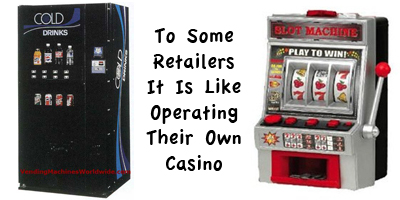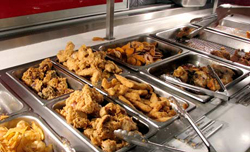Archive
There Is No Honor Among Thieves

I can remember it like it was just yesterday. “Everyone is stealing from me the suppliers, the employees, the customers and even my family, hell the Rabbi himself would do so if I gave him a chance “. These words have been lodged in the back of mind for years but every now and then something happens to me at work or I remember something that Uzzi said that was spectacularly selfish or ignorant which reaffirms my hope that all bosses are not like him.
It was one of the Apostles, in this case Peter, who vented those fatalistic words to me one day because he had just stumbled upon another incident of a supplier’s employee shorting one of his families stores bread deliveries. “See he said every one of them is a thief” Peter raged on to the point of almost bursting a blood vessel. He was making this statement to me at the same time that he was emptying all of the bills and coins from the soda machine which was out front of one of his families supermarkets. Like some retailers or operators of establishments with vending machines they come to see these things as an opportunity to supplement their already ‘strained’ incomes by putting a little coin in their own pockets. The tactic is simple, as are they, in that one takes product like sodas from their own store and then put these items in the vending machines that are located on the stores premises. Once a week or so the owner, or a trusted employee, will empty, read loot, the vending machine(s) of their money. Later another employee will fill up that same machine with more product. The money that was taken from the vending machine let’s just say probably never gets added to the stores sales for that day. These types of retailers might say that the more vending machines the more tax-free income there is for the family to share in. For some particular reason the word hypocrisy came to mind as I thought about Peter’s rage over the bread vendors delivery shortage on that particular stores order as he looted the vending machines.

When cigarettes used to be sold out of vending machines in stores some unscrupulous retailers considered this the mother lode of tax-free cash. I believe that in some states the price of a pack of cigarettes was over $4 before laws were enacted forcing these machines of death to be removed from the sales floor. However prior to that I remember the Apostle Peter removing over $100 a day from one of these machines. Granted the retailer had to pay the cost of the carton of cigarettes that went into those machines put heck that was just inventory costs on the books so to speak. When you are talking about taking $100 per day of off the books income out of a vending machine then this theft can add up to some serious money – roughly $25,000 per year from one cigarette machine. If the machine was located in a high traffic area then the annual no-tax take could be even higher.
The list can be quite lengthy when it comes to the assortment of vending machines that can generate that oh so loved no-tax income. There are machines that dispense gum, candy and small plastic toys. Have you ever seen one of those claw machines with the mechanical arm that children play to pickup a stuffed toy? Those types of machines might seem ancient compared to the variety found in supermarkets today however the amount of cash that they can take in is still substantial. Now we have postage stamp machines in stores. Have you checked the price on postage stamps lately? There are, in some states, instant lottery scratch off game machines. Video DVD and game rental machines and so much more. Granted the trend in the vending machine industry is to also allow a customer to pay for these purchases with a credit card however the ones that only accept cash are king in some retailers eyes.

Depending on the type of store ownership, independent or chain, of a particular supermarket there are numerous vendors who deliver products to it on a daily or weekly basis. Some supermarket industry statistics suggest that there can be mistakes on anywhere from 10 to 20 percent of these delivered orders. These mistakes can include shortages of products on an order, paperwork or invoiced quantities versus the actual number of products delivered, as well as mistakes in the amount a store is charged for a particular product. In supermarket industry terms we call this shrink. Supermarket shrink is composed of many components and some of these are not related to delivery shortages or overcharges. In fact, like I have stated before, I could write a post just on shrink in the supermarket industry but it is too esoteric of a topic for this post.

At the beginning of this post the Apostle Peter had raged on about the bread vendor who was stealing from one of his families stores, actually like most of the these bellicose blow hearts they married into the business so I guess the relationship is more like a business-in-law, anyway what actually happened is that the delivery driver shorted the store 2 loaves of white bread and 3 loaves of wheat bread on a delivery. Whether the route person made a mistake or was so desperate to feed his family that he needed to steal 5 loaves of bread is beyond the screed that I am writing here on this post. It was a shortage that is for sure and most stores normally have an associate whose responsibility is to verify all incoming deliveries of products. In my years in the supermarket industry I have met delivery people who are thieves as well as some who are in such a hurry to get on to the next stop that they make sloppy mistakes. Does stealing occur at the proverbial back receiving door of a supermarket? Yes it does. That is why there are or should be physical barriers as well as operating procedures to maintain the integrity of the store receiving process from a piece count standpoint. If delivery drivers are constantly coming up short on deliveries than that particular company should be contacted and relief sought from this type of poor customer service. My point here is that if a delivery person is allowed to short a supermarket on a delivery from a product quantity standpoint it is the fault of the store’s staff and possibly its management for not exercising best industry practices during the product receiving process. As someone once said to me locks on things are there to keep honest people honest. The Apostle Peter just did not get it. In his zeal to cut corners and put more money into his own pocket he decided that using standard receiving practices was something that he did not have to follow because after all he was just like Uzzi in that he knew best and everyone was stealing from him.

Did you know that employee theft can also include actions by the owners of the supermarket itself? Yes it can and the argument that it is their company therefore they can do what they want to is an operationally ignorant statement. Lead by example is the point that I wish to convey in this part of the post. As an aside the action of taking product off the shelf with out paying for it also applies to managers at chain owned stores as well – it is wrong. Employees look to their bosses and supervisors for examples on how to behave, in essence they look to see what the standard is in an organization. The argument can be made that businesses, like schools, can not be the parents to young people and there is much credence to that statement. So one can be “old-fashioned” and bury ones head in the sand and say that it is not the supermarkets responsibility to teach things like not to steal to their employees. Yes the parents should have instilled these values to their children at home. However store owners and management can have a more realistic perspective on this issue which is lead by example then discipline as the circumstances demand. Obviously I am directing the thrust of this part of the post to employee theft as it pertains to younger workers. The issue of older workers that steal will not be covered in this post so do not even think of taking me to task for being soft on store theft. In my opinion older employees have been around the block and on the street so to speak and therefore should be terminated in the vast majority of cases. Theft is not acceptable by anyone of any age or demographic group.
So to continue with this post I ask the question what is a younger employee to think when they see a manager or owner simply take something off the shelf and consume it or take it home? The employees know that their store has company policies on theft and consuming unpaid for products at work, usually this is stated in the employee or associates handbook, but this behavior by people in positions of responsibility can send the wrong signal to younger workers. Earlier in this post I regaled the reader with the quote about locks keeping honest people honest so my point here is that by leading by example the correct message is sent to all store associates – no product may be taken unless it is paid for. Managers and owners should never take something from a store shelf without paying for it under any circumstances. The attitude that I own it therefore I can take it makes absolutely no sense in the operation of a retail establishment and if you see this approach used by someone like a Uzzi or Apostle Peter one should not be surprised by the increase in younger employee theft. No I am not condoning any form of theft by younger or older employees. I am suggesting that everyone should act responsible whenever they are supervising others. Let’s send the right message to all store associates that taking something without paying for it is wrong. As store managers and owners we have responsibilities to ourselves, our employees, our customers and our families.

Back in the day a customer might sample a grape or begin to eat candy out of a bag then upon completing their shopping trip they would hand the bag to the cashier who would ring up the item. Well today some of that still goes on except the customer might sample an olive from the olive bar of course they just do that to make sure that the olives are okay – yea right. Perhaps they might sample a piece of fruit or a vegetable from the salad bar. This is part of the nature of food shopping. Sometimes a young child might have taken something off the shelf and put it in their pocket however when the parent found out about it they disciplined the child – hopefully they did anyway.
Unfortunately today there are customers, and I use that term loosely that just flat-out steal things. Some might be labeled as individuals with some sort of personality disorder however they are still thieves. I remember standing in line at a Starbucks in a upper middle income town one day and watched a woman in a fur coat lift a couple of CD’s off of a rack and put them in her purse. When I got to the counter to order I mentioned to the order taker what I had just witnessed and their response was wow she is in here all of the time but we will keep an eye on her now.
In the supermarket industry we see customers steal Health and Beauty products like deodorant, razor blades and shampoos on a regular basis. That is why some of these products are sometimes available for purchase from only behind a customer service counter. Having been through good and bad economic times I know that some people steal from stores no matter what the stock market is doing. Whether the shoplifter has a head full of bad wiring or they just do not know the difference between right and wrong theft is wrong and dealing with it is part of the challenge of doing business with the public.

Where the industry fails on the shoplifting problem is that they do not have a consistent policy on bringing charges against shoplifters or being proactive with law enforcement organizations to deter it. Some retailers take the approach that it is too expensive to prosecute shoplifters. The retailer has to dispatch the employee(s) who were involved with catching the thief to court on the appointed date. When they go to court the case seems to be postponed multiple times. Finally when the offender’s case is prosecuted the sentence is usually very light. Yes the retailer can and usually does ban the shoplifter from returning to their store. Also the industry as a whole employees a database of shoplifters that have been caught in stores that they can share with participating retailers however this service is usually used for pre-employment checks. The main point here is that the shoplifters who are caught are seldom prosecuted and if they are the sentences are relatively light. Can the retailer change the legal system so that the courts take these crimes more seriously? Probably not. However they can let prosecutors know just how serious of a problem that this is in the community and these thefts are not just nuisance crimes to be swept aside. If the local police officer seems indifferent to do something with the shoplifter that has been caught in the store then talk to their supervisor. Call your local community police liaison officer and raise objections to the way your situation was handled. Just like the leading by example that I wrote about earlier in this post supermarket managers and owners have community responsibilities when it comes to store theft as well. While it might seem a frustrating experience to deal with this issue in your community remember that change has to start somewhere. Eventually more in the community will support your efforts.
The general public should know that the industry’s trade associations, FMI and NRF, have lobbied hard to have organized theft rings be a focus of the major law enforcement agencies however what I am referring to here is theft by the single habitual thief who seems to pretty much get away with stealing for a variety of judicial reasons. Improving a stores internal and external anti theft procedures coupled with a fair and equal application of enforcement policies along with a constant effort to make law enforcement professionals support retailers in the community is the best solution available for retailers today.
Sorry no stories of Rabbi’s stealing anything from the local supermarket.
Look for a post on the Apostle Peter’s and Uzzi’s family shopping spree behavior that perpetuate the “it is my store so I will do what I want to do” syndrome sometime in the future right here on the Supermarket Stories blog.
AB
Copyright 2010 @ Supermarket Stories
Blackberry’s Are Not in the Produce Department and Can You Wait for Just a Minute I Have to Make a Call

Someone recently said that cell or smart phones are not the reason for a perceived increase in rude and ill-mannered behavior by some people in public. The fact of the matter is that these types of people act selfishly and rudely with or without the use of technology. We do not need to use a cell phone to explain why people today exhibit bad manners in public places because behavioral traits like these operate without the need for an electric charger.
Wander through the aisles of your local Supermarket and you will see, what appears at first, to be people talking with themselves. Then upon closer examination one realizes that these people are actually speaking to someone else on their cell phone through some sort of ear piece device. Cell Phones are a handy way for one’s wife, husband, significant other or elderly parent to get in touch with a shopper to ask them to pick up this or that since they are already at the store. If only this were the case in reality.
Listening to people talk on their cell phones in the supermarket can be an insight into our social norms or possibly a case study of conversations at a mental health clinic. For one particular group of shoppers, sorry young ladies, being at the Grocery Store seems to be the time that they can catch up on the gossip of what their fellow girl friends are doing and in some case doing it with. In the case of the busy 30 something male it is a chance to catch up on voice mails from the office or planning for the next sporting event. Every social group that I have observed talking on the cell phone in the Grocery Store have their own particular subject matter that needs to be talked about as they pickup the sodas, chips and frozen food. Why is this? Sociologists I am sure will have an answer and the statistics to back up a study on this type of behavior. Psychologist will have their perspectives on this subject and most of the rest of us will still go around scratching our heads as to why people feel the need to talk about things so loudly on the cell phone in public.
In the interest of full disclosure I own a cell phone or smart phone as they are referred to today. I have never really felt the need to wander through some public place and carry on a conversation with someone else at the same time. Remember though so far I have only been writing about customers using their cell phones in public at the Grocery Store.
So who says that Supermarket employees should be excluded from exercising a little bit of narcissistic tendencies on the job as well. I know for myself that they do so regularly and see it just about everyday or every time I go into a supermarket.
Let’s briefly go off the current subject matter for a moment so that I can provide some background as to why this socially rude and unacceptable behavior of using a Cell Phone at work in the Supermarket has been allowed to grow roots.
Technology is a wonderful thing in most cases. Technology allows for one to be more informed, in touch and have access to the volumes of the accumulated wealth of man. Years ago in many American business, not just the Retail Food industry, computers perpetuated the reduction in numbers of mid-level management positions in an organization. In older businesses the executives would set policies, then area directors would package them for use by the managers who in turn would supervise those policies implementation and adherence to by the line employees. Whether this was a manufacturing, traditional office or service operation mid-level management were the supervisory Bee’s in the business colony.
Technology, namely computers of all different sizes and capabilities, allowed executives to monitor productivity and the operations of a business at all levels. In the interests of cost savings and organizational profitability it was determined that there was too much mid-level management in place. More managing could be done with less management and more technology. Executives could have their finger on the pulse of an organization all of the time. Anyway this change in the organizational thought process worked its way through every industry in the United States even the humble Supermarket Business.
Depending on the size of a particular Grocery Store the organizational structure use to include a store manager, assistant managers, department heads, office personnel, inventory clerks, front-end supervisors, cashiers and perhaps someone to load your purchases into your car. Well to the owners and executives of the Grocery Stores this was just too many people to have on the payroll. Right Uzzi? After all the owners and executives now had the technology to manage every aspect of the business. They did not need someone else interpreting results for them or even carrying out some policy because they could do this themselves or through others further down the organizational chart. In addition the age of hello e-mail good-by personal visits by a mid-level managers was dawning.
So the Supermarket Industry went through an organizational change at store level. First store managers, through the use of technology, could do more to monitor the different areas of their stores. They did not need 3 or 4 assistant managers to help in the running of the store, now they just needed a couple of assistants. The need for multiple department heads was no longer needed either because technology has proven to the owners that the Dairy Department Manager can also be the Frozen Food Manager. Instead of having a pseudo bookkeeper at the store the computer would keep track of things and flag any exceptions which now the store manager must look into first. Front-end Supervisors became more and more extinct in most stores. Instead an office type person can help the cashiers or attend to the odd customer inquiry now and then. Cashiers can be cashiers or Self Checkout Registers can even eliminate the need for the number of cashiers as well – more on this in another post. The store can now reduce their over all store payroll by two to four percent. Considering that a Grocery Store can have a payroll of 7 – 14 percent of its total retail sales the savings are huge. So fewer eyes and more technology was the answer to a store’s profit and service be damned just ask the Holy Grail of retailing Wal-Mart.
So now we can better understand why in some cases no one is watching the proverbial store anymore – other than the closed circuit cameras that are for the most part not being monitored just recorded, the store is on its own as are the customers.
The other day I was in one of the Uzzi Family company stores and I noticed that a cashier, a young man, seemed to be fidgeting with something or with himself while he was waiting on a customer. Of course my thoughts were that perhaps the customer is really a robber and threatening the young cashier. However upon closer observation I saw that the cashier was still checking out or scanning a customers order it was just that the customer was not really putting the products on the check stand with any particular sense of speed. Heck there was not even a rhythm to this process for this customer was just slow putting things on the checkout belt.
This cashier apparently felt that he could use these snippets of 10 or 15 seconds between the groups of products being dug from the customers cart to carry on a Text Messaging conversation with someone who he knew. How’s about that? This cashier certainly practices some type of extreme time management if you ask me.
In the past I had noticed that even at my own local supermarket younger cashiers almost always seemed to have their cell phone or smart phone within close proximity to where they are working. Occasionally I would hear a ring tone similar to a Lady Gaga hit single or some other current R&B or Hip Hop artist going off in the employees pants pockets or purses that were placed under the counter of their workstation. I also noticed that if an opportunity presented itself either after the customer had finished checking out or before the next customer’s order was completely placed on the Checkout Belt that the cashier would reach for the phone and see either who it was that called earlier or what the Text Message said that just came in. There have been times where I have seen the cashier either respond to the Text Message or make a quick phone call before checking out the next customer.
I must be sensitive to this type of behavior now because I see it more and more in the retail stores that I am in. The points that I would like to make here with this post is that rude behavior and poor manners do not need technology to bring it out into the open. If people acting like this today were allowed to do these things and act like this growing up it certainly was something that the parents failed to communicate to their children as to what is acceptable and what is not acceptable forms of behavior. It is not up to the schools or businesses to be surrogate parents and teach their employees not to be rude however the businesses should always provide good examples of proper behavior. However it is up to the schools and the businesses to let their students or employees know what the rules are along with the consequences of not following them. Hello kids do you want fries with that order.
The second point that I would like to make here is that with the lack of supervision in more and more Supermarkets today it is not surprising to see that this type of rude behavior and employee malaise can occur. Store owners and management have an obligation to their customers to provide food products in a clean and sanitary environment with efficient and effect service at a reasonable price. No more and no less. Without proper supervision and periodic associate reviews that include addressing behavioral traits these forms of rude behavior will continue to find fertile ground in the supermarket.
As an aside it is not just the cashiers who are using their cell phones whenever they want to at work it is also the cart person, the meat cutter and the person behind the deli counter. At times I have heard more colorful language emanating from behind the counter from my location on the sales floor than I have heard in some bars.
Quickly to give Uzzi some credit he has a very strict policy on the use of cell phones in a store while an employee is on the company’s time or as he says his time. This policy requires that the employee not use their cell phone when they are working or on the sales floor only when they are on break or leaving for the day. Of course you always see Uzzi when he is in any of the stores with his cell phone at his ear but I guess that he is using it for company business – yea right.
It was only 10 years ago or so that if someone mentioned or used the word Blackberry in a Supermarket one would think of a particular type of fruit berry in the Produce Department. Today one’s first thought is of that famous type of smart phone. Oops I have to run now because I just got a Tweet from Paris Hilton and I want to read it right away.
AB
Copyright @ 2010 Supermarket Stories
Even With the Perscription Plan He Is Probably Still Both

I never thought that working in the grocery business would ever prompt me to know the exact definitions of two different wretched personality disorders. No it was not because I was doing any self-analysis, even though at times I thought it was me who might have needed it, no it was what I kept seeing acted out in front of me on a daily basis. Anyway having worked around an individual for so many years who seemed, as my son would say, has issues I found myself asking the gods of Google for an explanation. What were these personality quirks that I saw day after day after day? What would cause a human being to act and treat other human beings in such a caustic manner? I needed to know what this behavior of his was both for my own sanity and perhaps that of my fellow workers.
In my first post on this blog I made a fleeting reference to the Health Insurance Care System in the United States. Politely I asked the readers of my blog to leave this discussion at the door and not bring it up. Today I find myself contradicting my earlier request by bringing this hotly debated topic into today’s post.
Today’s employer sponsored and/or supported Health Insurance Care Plans for the most part offer less coverage, higher deductibles and fewer options than in recent years. With employer policy premiums continuing to escalate the companies and their owners have responded in very predictable ways. Leaving that very broad generalization to the side it is the grey areas of Health Care Insurance rules, eligibility and employee premiums that some business owners really know how to further reduce these spiraling benefit costs.
Now let’s identify some common Health Care Program terms. First Multiple Plan Offerings, Eligibility Dates, Anniversary Dates and finally Employee Contribution Premiums. These are the grey areas of Health Care Insurance Coverage that a savvy business owner can either do the right thing, not altruism, or be a Management Sociopath.

Uzzi is the most interesting of all the business owners that you will every read about on this blog. Uzzi saw opportunities to further reduce company expenses in the area of Health Care Insurance Premiums by attacking it like a Pit Bull on a Poodle. A quick note here no animals were injured in the course of writing this post.
So let’s see how Uzzi took advantage of these grey areas of Health Care Insurance Plans. First his families company is divided into three distinct employee groups. At the top of the pyramid is the executive or owners group. Next there is the administrative group and finally there is the companies store operations group. It should be noted that the companies store operations group is unionized to a degree which has been a thorn in the Uzzi family side for years.
For years Uzzi has used the health care insurance plan definitions and employment classifications to minimize who would get what as turnover took place in the stores. Additionally he realized that his long-term employees, who were the source of such drastic increases because of their more numerous claims he says, were getting older. His mindset has to be that as these older workers remain with the company they will have no place to go so he can also reduce their coverage while raising their premium rates at will. Is this practice illegal? Certainly not. My point is to introduce you to the mind-set of Uzzi and the dynamics of the family business as it pertains to benefits. There are subtle moves on his part that individually do not show malice to the employees however taken in conjunction with everything else that he does in all facets of the business then the picture becomes clearer if not bizarre.
With the ownership of a family business comes hard work, frustration, responsibility and if successful rewards. What an owner chooses to do is ultimately their decision however it is just not about rewards. Or is it? Some feel that there are moral obligations to both the employees and it’s customers. Uzzi, his brothers and in-laws elected to always have a separate Health Care Insurance Plan for themselves. No not for the other executive or directors in the organization just for the family. This plan would have the best coverage including a lot more flexibility with choices of doctors, a better prescription plan and besides it was mostly paid for by the company.
The administrative workers insurance plan and the other managers who participated in it have been subjected to constant premium increases over the years as just about every other worker in the United States has been. But then there is the “Uzzi factor”. Uzzi, having paid a careful eye on what this group of employees were paying each year, along with recognizing that the company had changed Health Care Insurance Plans for the last 7 years, saw an opportunity to exploit the situation and therefore put more money in the families pocket not into the business. During a recent change in companies that provide Health Care Insurance he had the HR department send out a “we are sorry but the premiums the company pays for Health Insurance continue to go up so you will need to pay more yourself”. Reasonable in this age? Yes. Here is the rub by switching Health Care Insurance Plan companies two years ago the total monthly premium actually went down for the company! So last year he had the employees in the administrative group paying more for coverage and the company less. This year the company switched again and the company reduced the total premium that it paid yet required the employees to pay more. So here is a question to ask yourself. Was this the right thing for Uzzi and his family to do? Again as an isolated incident it seems insignificant after all some assistance on Health Care Insurance is better than none – agreed. However readers if you continue to read this blog you might see that this is just the tip of the iceberg in terms of Uzzi’s narcissistic approach to company employees.
Let’s continue now with the topic of Eligibility Dates for Health Insurance coverage. Uzzi uses this to his advantage as well. HR lets Uzzi know that so and so is now eligible for Health Care Plan B or C each week. Uzzi’s response is well unless the employee asks for it do not say anything about it. Okay getting much more into a right thing to do situation and knowing Uzzi as I do this is exactly not the right thing to do especially since the employee was informed at their hiring that they would be eligible for coverage on a particular date. But with Uzzi there are even more opportunities to not do the right thing when it comes to Health Care Insurance.
Uzzi uses the system of position classification to sometimes move an employee from one Health Care Plan to another without telling the affected employee nor actually enrolling an employee in the New Health Care plan. If the employee does not make a claim for the time that they are not covered in a plan than the Uzzi family profits. If the employee does make a claim on the plan when they are not covered then Uzzi claims it was a clerical mix up to both the employee and Health Care Provider. Factor in that today’s workforce is more international and an employees command of English along with the rules of Health Care Insurance favors the employer then Uzzi with the family reigns supreme. Kind of a diabolical “Don’t Ask, Don’t Cover” variation on a theme.
One day I asked an acquaintance of the business if he ever knew anyone else like Uzzi and they said “there is no other one like Uzzi”.
Alex, I said to myself, be objective to Uzzi and the extended family in your writings but as I typed this post those two clinical terms mentioned earlier kept circling above my keyboard demanding to be keyed into this story one last time. I refuse to believe that those two words are really what this post has been about. There are plenty of future post to use the terms sociopath and narcissistic in, yes in deed there certainly are.
Good thing Uzzi and the family have the best Health Care Insurance Plan perhaps the Prescription Plan holds hope for all of us. As to myself I hope that I am still covered.
AB
Copyright @ 2010 Supermarket Stories
Your Chicken Takes a Road Trip or Dumpster Diving is Not Just a Sport

The humble chicken is one of America’s basic dinner and lunch entrees along with being a popular source of protein. Some individuals that do not want to eat Beef or Pork for the most part do not seem to have a problem consuming chicken. So it seems to me that this food product is as good a place as any to begin our journey through some of the weirder practices in America’s family run grocery stores and supermarkets.
That chicken or chicken based product that you see in your local grocery store had already traveled many miles before it found itself on the shelf in your local supermarket. It’s life began in a breeding cage in some massive Chicken Gulag where it was required to stand for long periods of time hyped up on some insane chemical cocktail mix that the producers called feed. From the time it begins its life a chicken has been selected for a particular purpose in the Retail Food Chain such as that of a fryer, plump boneless breast, nuggets etc. Science and technology has helped the food industry to maximize the chickens contribution to their profit structure and our daily diet.

So once this Roger Clemens bred chicken was determined to be the right size for what it was designed for it was killed, stripped of its feathers, dignity, processed, packaged and put on a truck for parts unknown. For the purposes of our story its destination is a family owned grocery store somewhere in the United States.
For most people the packaged chicken will be picked up from a store shelf by the consumer, scanned, bagged and put into their mini van or SUV where it will finally reside in the refrigerator ready to be used for the family meal. In some of the grocery stores that you will read about on this blog this is only the beginning of the Chicken’s Road Trip.
Some years back I was working for a grocery store chain and it was lunch time so the suggestion was made that all of us go to the store’s deli department to get some lunch and continue working at our desks. Having worked in other family run grocery stores I was filled with a bit of trepidation because their basic sanitary practices sometimes leave a lot to be desired. Anyway I hid my fears of a Biological Attack on my body and followed along with everyone else to the store’s deli department.

As we were all gazing at the display cases filled with assortments of meat, cheese, salads and already prepared foods my mind felt like it was being teased by the overall appearance and presentation of the food products neatly arranged before me. My stomach began to growl quietly and I felt this overwhelming urge to make a decision so that I could savor the taste of these visually appealing dishes. Suddenly the clerk behind the counter ask me what I would like and I quickly responded “Chicken Salad please”.
“No, do not get that” one of my fellow lunch mates sternly said to me. No I asked – why? He said “don’t you know where the Chicken Salad comes from?”. The storage cooler I naively answered. He started laughing and then began to tell me of how that Chicken Salad got into the display case.
First of all this store sells Rotisserie Chickens he said. I looked at him like why are you talking to me like I am an idiot almost every store does? Anyway he said that this store had a policy to use chickens in the meat case that have gone out of date in the deli department to boost its profitability. I thought for a moment and figured well I was always told that if a product has a Sell by Date it just means that the customer should have bought it by that point not necessarily used it – they have a few days at home for that. Well I kept my thoughts to myself while my lunch mate continued with the origins of the chicken salad story.

Normally he said the deli brings in special chickens from distributors to make Rotisserie Chickens or Fried Chickens in this store. These distributor supplied chickens tend to be injected and pre-seasoned and will be the source for a future blog entry. However one of the owners son-in-laws of this small chain of stores was passing the trash door in the back of one of the stores some time back and saw someone from the meat department throwing away some chickens. The story goes that this son-in-law who had witnessed this brazen act of waste and just about jumped through the Trash Door to grab some of the chickens before they landed in the outside trash container. Ever smelled the chute of a trash disposal in a supermarket? Because of this son-in-laws possible background in waste disposal at some previous job he saw no reason why these dated chickens could not be rescued from the trash bin and actually used for something else in the store.
It was at that point in history that this grocery store decided that they could take the dated chickens from the meat department and use them in its deli department. Okay other than reaching into the trash chute or digging chickens out of a trash can what is the harm in using a chicken who’s sell by date is yesterday? Boy was I in for a shock.
Remember that I had asked for the Chicken Salad? Well what was wrong with that I thought. My lunch mate now continued the story of the Traveling Chicken. He said that the store will fry some of the chickens that are “rescued” and then sell them in the deli department. These pieces of Fried Chicken will usually be kept in the case for a day or so. Okay I thought so far it is not like the Fried Chicken will be rancid smelling besides I ordered the Chicken Salad. Then he said if the Fried Chicken is still there the next day it will be pulled from the display case and then that meat from those chickens will be cut up into chunks to use in the Chicken Salad. Okay now I was getting scared. Then he said that some portions of this “rescued” Chicken Salad might sit in the display case for purchase for another couple of days. Wow I thought that Chicken Salad might have been out of date for a week or so before I eat it. No I was saying to myself I do not want the Chicken Salad. Too late the clerk was already putting the Chicken Salad into a container for me to eat.
My lunch mate started to chuckle and said “do you know what happens to the Chicken Salad that is not sold?”. Sheepishly I replied no what happens to it? Well he said the old Chicken Salad is then put in a colander and all of the mayonnaise along with the seasoning is rinsed off and the chicken is then used for anything from a Chicken Ala-King entree to Chicken Soup.
Now I felt the insides of my stomach rumbling and my mouth felt like it does after one has vomited yet nothing comes out you know the dry heaves? Then I realized that what I had ordered was not such a bad selection after all because I did get the Chicken Soup!
AB
Blog Entry Foot Notes and Perspective Comments:
– Most grocery stores today procure their deli salads and prepared foods from either an outside distributor or they are made in a companies central commissary. However there is still a significant percent of stores that make their own salads, entrée and take out foods in-store.
– The ability to hold the temperature of a refrigerated display case or a storage box in supermarket is an important factor in keeping perishable food safe for the consumer.
– Case maintenance and electrical usage is a large expense in every supermarket operation today.
– One university study stated that Supermarkets in the United States account for 5% of the total amount of electricity used annually.
– All grocery stores are subject to random health department inspections from local government or state agencies along with investigations initiated by consumers.
– It is not in the interest of any retail food establishment to endanger their customers health by selling contaminated or spoiled food products.
– The number of reported food related illness or contamination incidents varies from location to location.
– Retail Supermarkets operate on one of the smallest net profit percentages of almost any industry in the United States.
– Next to the cost of goods sold in a typical supermarket or grocery store labor is the next largest expense of a retail food operation.
– The stories in this Blog entry are true.
Copyright @ 2010 Supermarket Stories
Recent Posts
Categories
Archives
- November 2010 (2)
- October 2010 (10)
Calendar of Posts
| S | M | T | W | T | F | S |
|---|---|---|---|---|---|---|
| 1 | ||||||
| 2 | 3 | 4 | 5 | 6 | 7 | 8 |
| 9 | 10 | 11 | 12 | 13 | 14 | 15 |
| 16 | 17 | 18 | 19 | 20 | 21 | 22 |
| 23 | 24 | 25 | 26 | 27 | 28 | 29 |
| 30 | ||||||